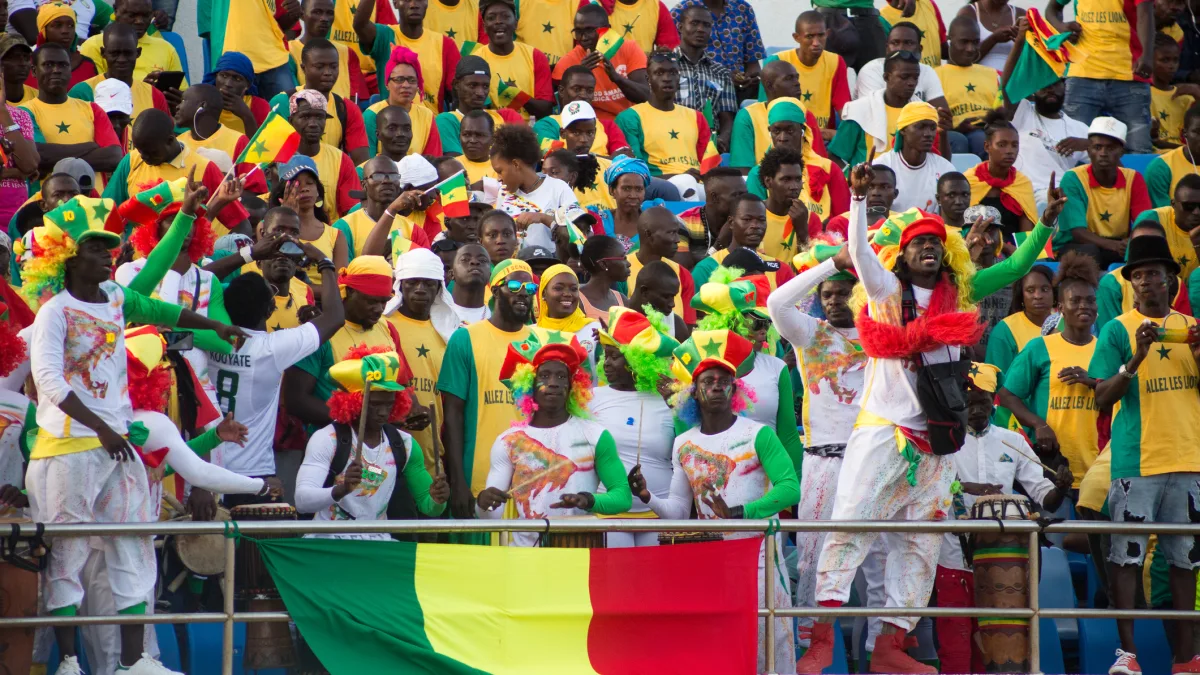News agency Kazinform loves a positive mention in the foreign press about Kazakhstan. The Astana-based outlet has recently trumpeted the country’s ‘strategic rise in energy, diplomacy and innovation’ according to Forbes, its emergence as a ‘top destination for sustainable tourism’ per Euractiv, and its ‘digital revolution’ as reported by The World Financial Review.
Each favourable mention is presented with the breathless enthusiasm of a provincial mayor announcing a presidential visit.
Two thousand kilometres west, Romania provides the mirror image of this behaviour. In 2009, the BBC’s Top Gear programme filmed an episode celebrating Romania’s Transfăgărășan highway as potentially ‘the world’s greatest driving road’. The show was overwhelmingly positive about Romania’s dramatic mountain scenery and this spectacular mountain pass. Yet when presenter Jeremy Clarkson made a few throwaway remarks about Borat and gypsies the Romanian ambassador to the UK felt compelled to send a formal letter of complaint to the BBC. Even whilst acknowledging the programme’s ‘freedom of expression’ and stating ‘appreciation for the show’, the diplomat requested the episode be re-edited to remove the offending comments.
These contrasting reactions—Kazakhstan’s eager compilation of praise and Romania’s inability to simply enjoy overwhelmingly positive coverage—exemplify an affliction that has spread across Central and Eastern Europe and Central Asia. Call it Small Country Syndrome: an obsessive dependence on foreign validation that renders nations prisoners of external opinion.
The mechanics of hypersensitivity
The syndrome manifests in two distinct but related behaviours. First, an almost pathological sensitivity to negative foreign coverage, however accurate or constructive. Second, an embarrassing tendency to celebrate positive international attention with disproportionate enthusiasm.
Consider Hungary’s response to sustained EU criticism of its media policies. Since Viktor Orbán returned to power in 2010, his Fidesz party has systematically captured independent outlets, transforming a pluralistic media landscape into what critics describe as a government propaganda machine. When European institutions documented this process, Budapest’s reaction was not reform but defiance. Hungary now ranks 68th out of 180 countries in Reporters Without Borders’ press freedom index, having fallen 31 places since 2013.
Yet Hungarian officials frame such criticism as evidence of Brussels bias rather than cause for concern. They have perfected what analysts call ‘the Hungary model’—a sophisticated system of media capture that operates through formally independent bodies, providing plausible deniability when accused of undermining press freedom.
Slovakia offers another instructive case. Prime Minister Robert Fico’s government has responded to international warnings about disinformation by attacking the messengers. When observers noted that 51 per cent of Slovaks believe Ukraine and the West were responsible for Russia’s invasion—a stunning triumph for Kremlin propaganda—officials blamed foreign media for spreading ‘war propaganda’ and covering up Slovakia’s domestic problems.
Poland exhibits similar defensive reflexes. When the European Union documented Warsaw’s own systematic erosion of media freedom, the then prime minister, Mateusz Morawiecki, and his Law and Justice party dismissed EU criticism as foreign meddling, even as international observers catalogued the transformation of public broadcasters into government mouthpieces.
Fico and his Polish counterparts embody this defensive posture. In one Facebook post, the Slovak leader declared that. “Slovakia is struggling with expensive energy, rising food prices, unaffordable housing…but journalists are only interested in Ukraine and themselves”. Such statements exemplify confirmation bias on a national scale—cherry-picking aspects of complex issues that fit a predetermined narrative whilst ignoring inconvenient facts.
Celebrate good time
If the defensive reaction to criticism seems excessive, the euphoric response to praise appears almost manic. Kazakhstan has institutionalised this behaviour through its foreign media compilations, treating every positive mention as validation of national worth.
But the pattern extends beyond Kazakhstan. When international rankings place any country in the region favourably—whether for digital competitiveness, happiness indices, or ease of doing business—domestic media trumpet these achievements with front-page coverage.
The European Media Literacy Index 2023 provides a revealing example: Estonia and Latvia celebrated their strong showings, whilst Romania, Poland, and Lithuania focused defensively on their declining positions.
The Baltic states, despite their EU membership and high development levels, remain acutely sensitive to international perceptions. When Reporters Without Borders ranked Estonia 2nd, Latvia 15th, and Lithuania 14th for press freedom—far ahead of Russia’s 171st position—these rankings were cited almost defensively, as if requiring constant justification of democratic credentials to a sceptical world.
When validation-seeking backfires
The Baltic states’ recent experiment with influencer diplomacy illustrates how desperately seeking positive attention can spectacularly misfire. In July 2025, Lithuania, Latvia, and Estonia collectively spent 90,000 euros to host American YouTuber Darren ‘IShowSpeed’ Watkins Jr., whose 40-million-strong audience represents precisely the young demographic these countries hope to attract as tourists.
The arrangement seemed sensible enough: 30,000 euros per country to cover the influencer’s private jet, security, and appearance fees in exchange for live-streamed content showcasing Baltic culture to a global audience. Estonian officials justified the expense by noting that traditional marketing campaigns often cost hundreds of thousands of euros for far less reach.
Yet within days, the initiative transformed from tourism triumph to diplomatic embarrassment. During his livestreams, IShowSpeed casually mentioned plans to visit Russia as well—apparently without any payment from Moscow. Suddenly, the Baltic states found themselves threatening to withhold payment if he proceeded with the Russia visit, with Lithuanian officials declaring that such a trip “would not match the original agreement”.
The episode crystallised everything wrong with validation-seeking behaviour. Here were three successful EU member states, all with GDP per capita far higher than Russia, desperately paying for the approval of a 20-year-old American known for “energetic behaviour and various stunts online”.
When they discovered they could not control his broader itinerary, panic set in. The pursuit of positive attention had created more diplomatic headaches than simply ignoring international social media entirely.
The post-communist complex
Indeed, countries emerging from communist rule face a particular variant of Small Country Syndrome. Having spent decades isolated from international discourse, they oscillate between craving Western approval and resenting Western scrutiny. The contradiction creates a perpetual state of insecurity about their place in the world.
Uzbekistan’s experience illustrates this perfectly. Under Islam Karimov’s 27-year rule, the country was a pariah state notorious for systematic torture and media repression. When President Shavkat Mirziyoyev assumed power in 2016 and began modest reforms, international media coverage shifted from uniformly negative to cautiously optimistic. Officials seized on this change, with one analyst noting that, Uzbekistan has garnered positive international media coverage with its political thaw, while Kazakhstan has reaped a slew of negative headlines during its own transition.
Romania’s recent electoral crisis provides perhaps the most dramatic example of this defensive mindset. When the Constitutional Court annulled the first round of presidential elections due to documented Russian interference favouring ultranationalist candidate Călin Georgescu, both Georgescu and his opponent Elena Lasconi condemned the decision as undermining democracy.
Even legitimate institutional safeguards against foreign manipulation were framed as evidence of elite conspiracy rather than democratic resilience.
The attention economy
What drives this behaviour? The root cause lies in what might be termed ‘attention scarcity’. Large powers generate so much international coverage that individual articles barely register in domestic consciousness. America endures thousands of critical foreign reports without consequence; China dismisses Western media criticism as routine propaganda.
Smaller countries, by contrast, live in an environment of attention poverty. Each mention in international media feels significant precisely because mentions are rare. This scarcity creates a distorted perception of foreign coverage’s importance, leading to wild overreactions in both directions.
The problem is compounded by structural factors. Foreign correspondents often cover multiple countries in a region, parachuting in with limited local knowledge. Their reports may miss crucial nuance or context. Local audiences, hyperaware of international coverage, scrutinise these reports with forensic intensity, finding slights and biases where none were intended.
Political leaders exploit this dynamic for domestic advantage. Condemning international ‘bias’ allows politicians to rally nationalist sentiment whilst portraying themselves as defenders of national dignity. Conversely, celebrating positive coverage demonstrates their success in raising the country’s international profile.
The cure is confidence
How might countries escape this self-imposed prison of external validation? The answer lies not in generating more favourable coverage, but in developing genuine institutional confidence that renders foreign opinion less consequential.
The Nordic countries provide an instructive model. Despite their relatively small size, Denmark, Finland, Norway, and Sweden rarely exhibit such hypersensitivity to foreign coverage. When international media criticise Nordic policies—as occurred during the AstraZeneca vaccine suspension controversy—the domestic reaction remains proportionate rather than hysterical.
This confidence stems from several factors: robust democratic institutions, high social trust, and diversified economies that reduce dependence on external validation. Most importantly, these countries have developed domestic institutions—independent media, academic research centres, think tanks—capable of generating sophisticated analysis of national performance without reference to foreign opinion.
Austria and Switzerland offer another model. Despite their modest size, both countries maintain a relaxed attitude towards international coverage, neither craving praise nor bristling excessively at criticism. This equanimity reflects their confident neutrality and institutional maturity.
The need for strong institutions
For countries in Central and Eastern Europe and Central Asia, the path forward requires significant institutional development. This means investing in independent media outlets capable of providing nuanced domestic analysis rather than simply reacting to foreign coverage. It means funding academic institutions that can generate original research rather than merely responding to international rankings. It means developing civil society organisations strong enough to hold governments accountable without reference to external pressure.
Most importantly, it requires transformational political leaders mature enough to resist the temptation to weaponise international coverage for domestic gain. When politicians stop treating foreign media attention as a barometer of national success—or evidence of foreign conspiracy—citizens may follow suit.
The alternative is continued enslavement to external opinion. Countries will remain trapped in cycles of celebration and condemnation, their domestic discourse shaped more by distant editorial rooms than by their own needs and values. They will continue to blame foreign media for domestic problems whilst simultaneously craving foreign validation of their achievements.
True national confidence cannot be manufactured through positive press coverage or sustained through defensive reactions to criticism. It emerges from the quiet assurance that comes from building societies capable of governing themselves effectively, regardless of what distant observers might think. For countries across the region, this represents both the greatest challenge and the ultimate liberation from the validation trap.
The cure for Small Country Syndrome is not more favourable international attention, but less dependence on it entirely. Until this lesson is learned, too many nations will remain prisoners of foreign opinion, celebrating and condemning themselves based on the shifting winds of external coverage rather than the steady compass of their own institutional strength.
Photo: Dreamstime.







